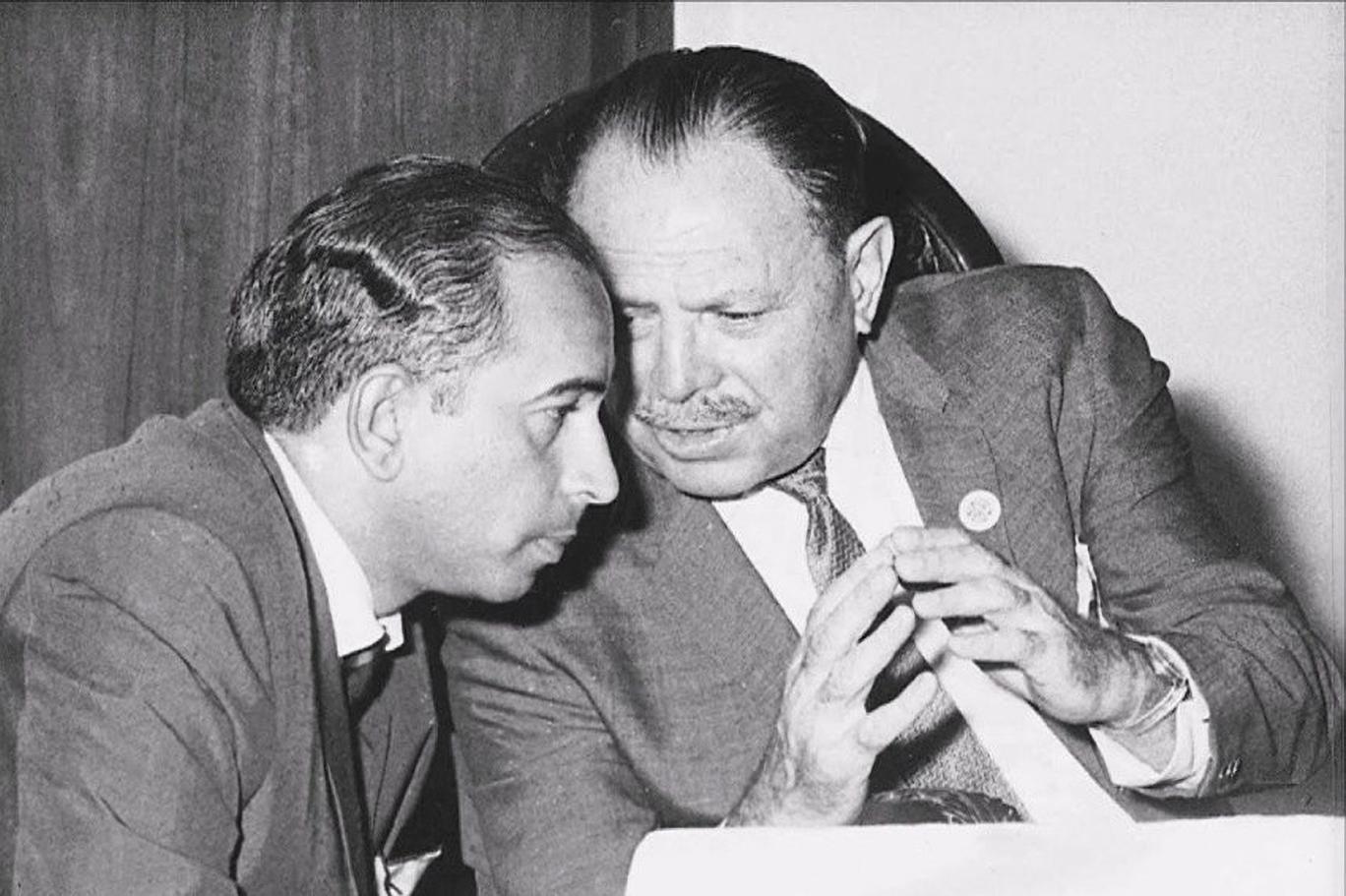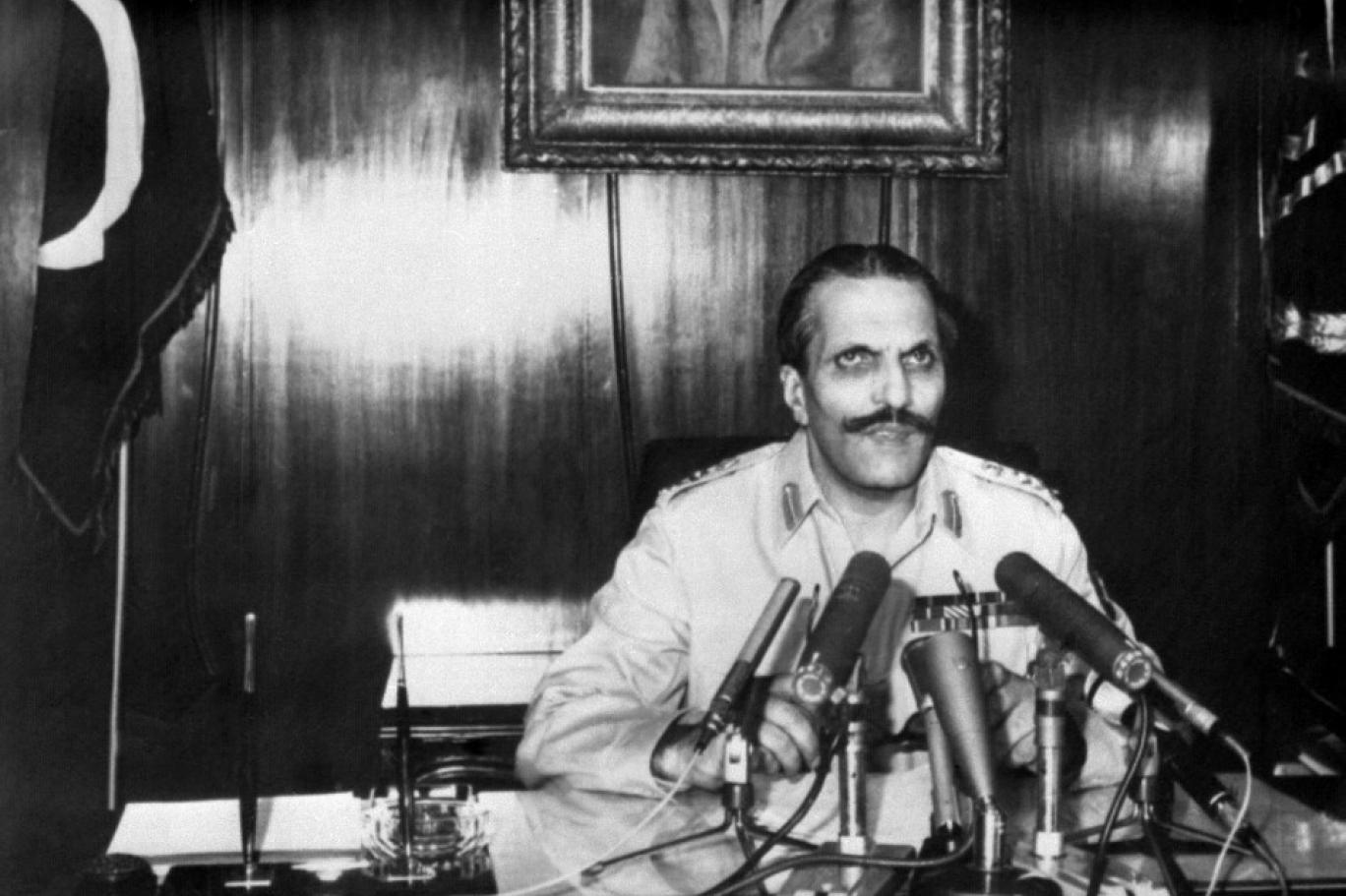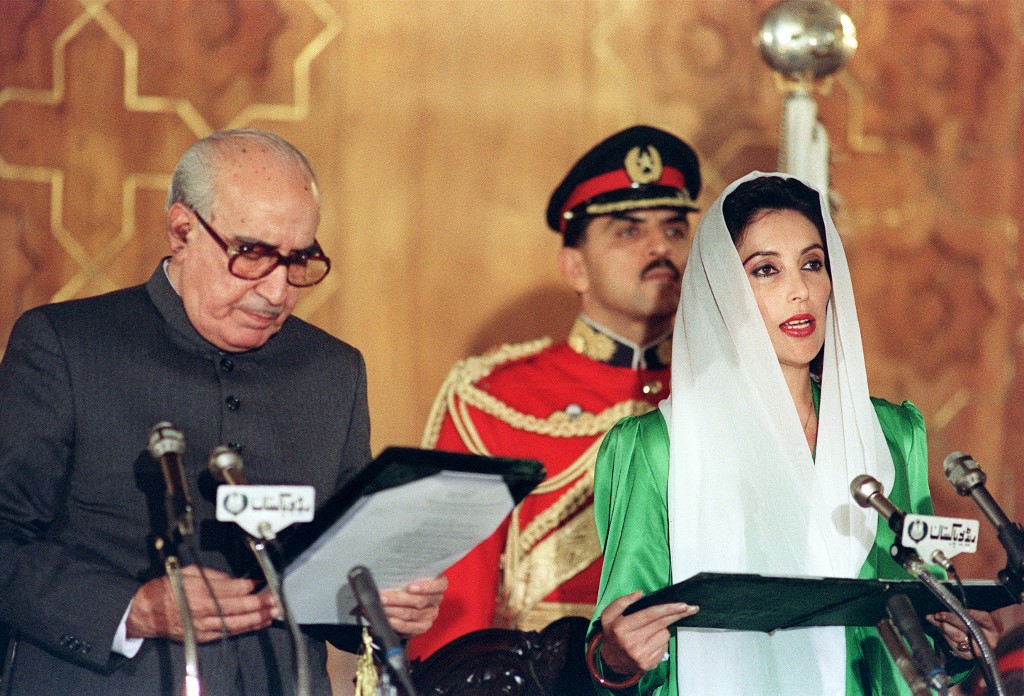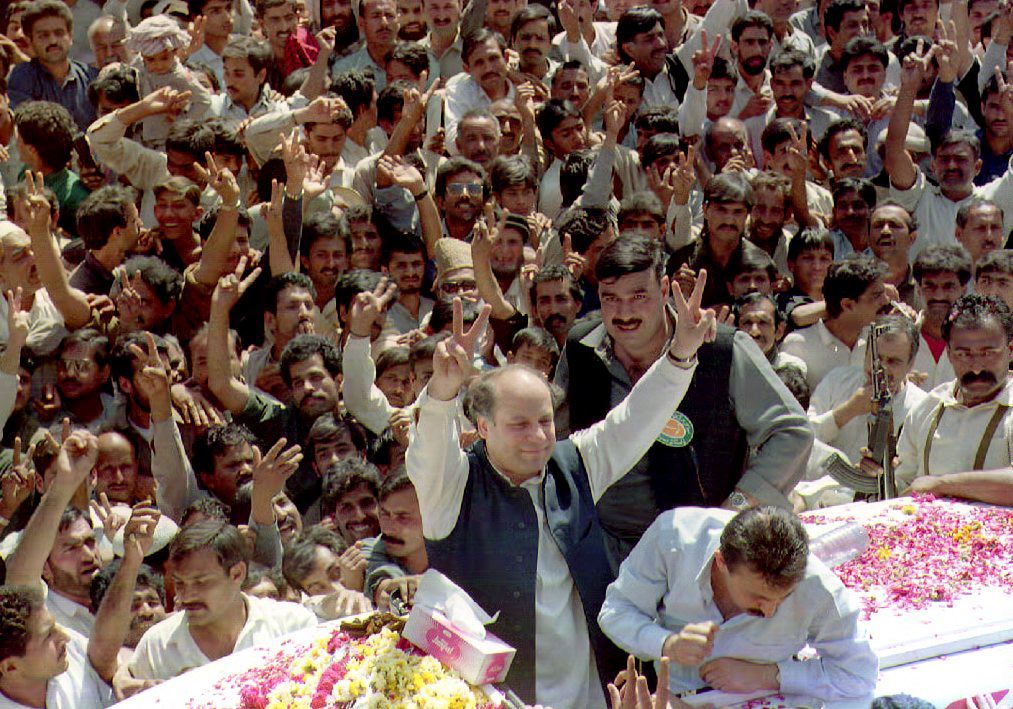The first speech given in the House or on the media after taking the oath of office of the Prime Minister is a reflection of the Prime Minister’s thoughts which he presented as his manifesto before coming to power or the development of the country and the nation. It shows the fulfillment of promises that he made during his election campaign.
It is a different thing that most of these promises remain limited to the limits of the House.
On August 11, 1947, three days before the establishment of Pakistan, Quaid-e-Azam Muhammad Ali Jinnah said that ‘the great scourge India is currently suffering from is bribery and corruption, we must eradicate it very strictly. Another curse is cronyism and nepotism which will never be tolerated.’
But the viewers saw that the two curses that harmed this country the most are these two curses.
In the same speech, Quaid-e-Azam hinted to make the country a secular state and said that now you are free, you are free in this country of Pakistan, go to your temples, go to your mosques or any other place of worship you belong to any religion. Be it caste or creed, the business of the state has nothing to do with it. But what happened was that on the same night, an attempt was made to censor this part of Quaid-i-Azam’s speech, which was thwarted by Altaf Hussain, editor of Dawn.
On the morning of the first day of the establishment of Pakistan, 15 August 1947, Quaid-e-Azam addressed the nation on Radio Pakistan and congratulated all the citizens of Pakistan on the establishment of the independent state of Pakistan and said that with the coming into existence of this new state, Pakistan Great responsibilities are imposed on the inhabitants of Now they must prove to the world how a nation consisting of different elements can live together in harmony.
On the same day, Nawabzada Liaquat Ali Khan took oath as the first Prime Minister of Pakistan, but he did not make any speech on that day, his statement which is preserved in history was given on 18 August 1947 on the occasion of Eid-ul-Fitr.
In this statement, Nawabzada Liaquat Ali Khan declared that ‘I have a strong desire that the rich should not become richer and the poor should not become poorer.
We will not tolerate or allow exploitation of the poor, profiteering and corruption in any form. I want to make it clear to the corrupt people that wherever they are or whatever position they are in, their days are numbered.’
Four years later, Nawabzada Liaquat Ali Khan was martyred while addressing a public meeting. After him, Khawaja Nazimuddin, Muhammad Ali Bogra, Chaudhry Muhammad Ali, Hussain Shaheed Suhrawardy, II Chandrigar and Feroz Khan Noon became the prime ministers of Pakistan. He also made similar claims in his first broadcast speeches, but the country continued to run erratically, with palace conspiracies and exorcism at its peak, resulting in martial law in October 1958.
Interestingly, this martial law was not imposed by the army chief but by President Iskandar Mirza. After the imposition of martial law, Chief Martial Law Administrator General Ayub Khan addressed the nation.
Taking the politicians with open arms, he said that ‘politicians have brought poverty, inferiority, deception and humiliation to an end. Goodness was not visible, they were running madly to get power, even if the people and the country go to hell, they were busy with their halwa mande.’
General Ayub Khan added that ‘all the highest values and ideals of religion and culture have been trampled and the country is suffering from economic, administrative, political and moral disorder which cannot be tolerated in today’s dangerous times.
“Our country has to solve many internal problems and also protect the country from external threats and for this purpose a stable base is needed in the country.”
The reign of General Ayub Khan lasted for ten and a half years. A special feature of his reign was that he used to address the nation on the first day of every month. He seemed to be well aware of public issues.
In 1962, he also tried to give a constitution to the country, but it was the same constitution in which the source of powers and the personality of the President were at the center. According to some commentators, the position of the President in this constitution was like that of Faisalabad Clock Tower, where all roads converged. Habib Jalib wrote his famous poem Dastur against this constitution.
In 1964-65, presidential elections were held in the country, in which the system of basic democracy was tested and Ayub Khan defeated Ms. Fatima Jinnah by a huge majority and became the president of the country once again.
In 1968, when the ten years of Ayub Khan’s rule were completed, the people’s patience ran out and a nationwide movement against Ayub Khan began. There was also an unsuccessful assassination attempt on Ayub Khan in Peshawar, processions against the government were started in every street and neighborhood.
Ayub Khan tried his best to save his government but things got out of hand and on 25 March 1969 he handed over power to a new Chief Martial Law Administrator General Muhammad Yahya Khan.
Addressing the nation on March 26, 1969, Yahya Khan repeated more or less the same words and said that ‘We are passing through the most critical period in history, due to the movement against the previous government, our national dignity and our progress have been severely affected. There is a blow. Our administration will not tolerate any kind of demonstrations and subversive actions, so I advise everyone to do their part to repair the damage done to the country’s economy and for the welfare of Pakistan. Get started.’
A few days later, Yahya Khan issued a press note and assumed the office of President without taking oath.
On April 4, 1969, he issued an interim constitution decree abrogating the 1962 constitution and stating that the martial law decree of March 25, 1969, martial law regulations, orders and decisions of military courts cannot be challenged in any court. .
On November 28, 1969, he addressed the nation and said that 1970 would be the year of elections, these elections were held on December 7, 1970, but the President himself refused to accept the results of these elections, resulting in civil war in the eastern part of the country. and on December 16, 1971, East Pakistan was separated from Pakistan forever.
The reins of the western part of the country now fell into the hands of Zulfiqar Ali Bhutto, who took over as the country’s president and chief martial law administrator on 20 December 1971. He was the first civilian in the history of Pakistan to become the Chief Martial Law Administrator.
In his first speech, which was broadcast live on radio and television, he declared that ‘we are facing the worst crisis of our lives, we have to pick up the pieces, very small pieces, we will build a new Pakistan, a Pakistan that The dream of Quaid-e-Azam was seen.
In this first speech, he announced the resignation of several military officials and appointed General Gul Hasan Khan as the head of Pakistan’s army.
During the reign of Zulfiqar Ali Bhutto, the country was blessed with a unified constitution and Zulfiqar Ali Bhutto became the Prime Minister of the country. In 1977, he held general elections in the country, the results of which the opposition parties refused to accept and started a nationwide movement against Zulfiqar Ali Bhutto.
The stems of this movement came from abroad. Long negotiations between the government and the opposition began, when the situation could not be resolved in any way, on July 5, 1977, General Muhammad Zia-ul-Haq, the head of the army, took power by imposing the third nationwide martial law.
On the same night, he also addressed the nation on radio and television saying ‘My dear countrymen!’ It started with the words These words have become a part of everyday language today.
He said in this speech, ‘I want to make it clear that I have no political motives and the forces are not willing to abandon their military role. I have taken this step to fill the void created by the coercive politicians.
I have undertaken this task as a true soldier of Islam. My only aim is to conduct free and fair elections which will be held in October this year. After the elections, the power will be transferred to the elected representatives of the people. I firmly assure that I will not deviate from it.
“I hold the judiciary in high esteem but if any martial law orders or regulations must be imposed due to unavoidable reasons, they cannot be challenged in any court of law.
“Differences between political parties have become so intense that emotions need some time to cool down, so I have banned all political activities from today until further notice.” Political activities will be allowed before the elections.
General Muhammad Zia-ul-Haq had promised that general elections would be held in October 1977, but this promise was repeatedly broken, and finally, general elections were held on a non-partisan basis in February 1985. For the next twenty-five days, it was not clear which member of the assembly was sitting at the head of the Prime Minister’s Huma.
Finally, on the suggestion of Peer Pagara, Muhammad Khan Junejo became the Prime Minister of the country. It seemed that he would prove to be a weak prime minister, but in his very first speech after taking oath, his sentence alerted General Zia-ul-Haq that ‘martial law and civil government cannot coexist for a long time.’
He said that it will be my duty to ensure the supremacy of law and justice to the society, I will do my duty to maintain and raise the morale of the people. He also warned the bribe takers that there is no place for them in Pakistan, they should give up bribery and forget these ways forever.
Muhammad Khan Junejo’s rule lasted for three years. On May 29, 1988, General Muhammad Zia-ul-Haq announced the dissolution of not only his government but also the National Assembly.
The next day, on May 30, he addressed the nation and said that the Prime Minister had completely succumbed to political pressure due to which corruption, nepotism and disorder had become common and the law and order situation in the country had completely deteriorated. It was spoiled.’
But Muhammad Khan Junejo termed the accusations of General Zia-ul-Haq completely one-sided and said that he had introduced dignity, respect and decency in the politics of the country and this claim of the President was unjustified.
Three months later, General Zia-ul-Haq died in an air crash. That same night, Senate of Pakistan Chairman Ghulam Ishaq Khan assumed the post of the country’s head. As expected, on the same night, he addressed the nation and said that the tragedy of Zia-ul-Haq’s death is not only a great tragedy but also a severe test for the nation, a test that we have to go through unitedly. Patience, unity, steadfastness and faith emerge from the clock, the fire of trials makes the nations bitter, their essence and brilliance, their determination comes out higher and stronger. I am sure that we too will emerge from this ordeal today as a stronger and united nation.’
In this address, President Ghulam Ishaq Khan promised that the country’s general elections will be held on November 16 as per the scheduled program and the government will fulfill all its responsibilities in order to conduct the elections in a peaceful, fair and impartial manner. Will complete.
Elections were held on November 16 but no political party could get a simple majority. The Pakistan People’s Party won the highest number of seats, which led to the nomination of the co-chairperson of the Pakistan People’s Party, Ms. Benazir Bhutto, as the Prime Minister of the country and invited her to form the government.
On December 2, 1988, Ms. Benazir Bhutto took the oath of office. That evening he addressed the nation and announced an end to the unjust measures and excesses of the martial law era. He paid tribute to their martyrs and said that hardly any nation in human history has fought such a great struggle for the restoration of democracy.
He said that the workers of our party who were dismissed from their jobs will be reinstated in an honorable manner. We want to release our political prisoners immediately, but the Eighth Amendment is an obstacle.
He also announced to liberate the press and break up the National Press Trust and said that all laws against freedom of the press would be repealed. He said that we will give autonomy to television and radio so that they can fully serve the people. Ms. Benazir Bhutto announced the lifting of restrictions on student politics.
How could the establishment accept these actions of Ms. Benazir Bhutto after a long period of martial law and the end of military rule? The result was that his government was overthrown after only 20 months.
In 1990 Mian Muhammad Nawaz Sharif, in 1993 Benazir Bhutto and in 1997 again Mian Muhammad Nawaz Sharif became the Prime Minister of the country. Political instability continued in the country until on October 12, 1999, General Pervez Musharraf took over the country without imposing martial law.
He preferred the post of Chief Executive for himself. After coming to power, General Pervez Musharraf declared his assets and said that he had no intention of joining politics.
In 2002, General Pervez Musharraf also had to hold general elections in the country, as a result of which first Mir Zafarullah Khan Jamali and then Chaudhry Shujaat Hussain and Shaukat Aziz became the prime ministers of the country.
He also made loud claims in his first speeches like his predecessors. In the general elections held in 2008, Yusuf Raza Gilani became the prime minister. In the general elections of 2013, Mian Muhammad Nawaz Sharif was elected as the Prime Minister of the country for the third time and the series of speeches continued.
On July 25, 2018, the country once again went through the experience of general elections. This time, the huma of the Prime Minister sat on the head of Pakistan Tehreek-e-Insaf Chairman Imran Khan. After assuming office, he delivered a long address to the nation on 19 August 2018 and announced reforms targeting corruption and focusing on human development.
Speaking for more than an hour, he repeated his campaign promises to build an Islamic welfare state but also touched on issues that Pakistani prime ministers only mention, such as children. Sexual abuse and climate change.
He pledged to improve Pakistan’s relations with its neighbors, without naming names, and to improve security in the tribal areas along the border with Balochistan and Afghanistan.
He called for a progressive tax system and encouraged the wealthy to pay higher interest rates to benefit the needy. However, he did not explain how he would impose more taxes, particularly on the wealthy.
He said that Pakistan will start an austerity campaign to reduce foreign debt. To begin with, Imran Khan announced measures to reduce his and the country’s budget, including reducing the staff of the Prime Minister’s Office from 524 to two.
“I will live in a three-bedroom house that used to be the military secretary’s house,” he said. He further said that the Prime Minister’s official residence will be made a university. He said, ‘I will fight against the corrupt, either this country will survive, or it will be corrupt.’
This section contains related reference points (Related Nodes field).
Other major points of Imran Khan’s speech included reforms in the financial, education and health care sectors, seeking help from overseas Pakistanis in rebuilding the country, restructuring the judiciary, implementing Khyber Pakhtunkhwa’s policing model in Punjab province and power. including transfer from Islamabad. Imran Khan’s promises were the heart of many Pakistanis, but unfortunately most of them remained promises.
The opposition termed Imran Khan’s claims as emotional and criticized him for ignoring terrorism and militancy.
April 2022 Imran Khan’s government ends in a no-confidence motion, now Pakistan Muslim League-N leader Shahbaz Sharif is elected as the country’s prime minister.
He said that our first goal is to develop the economy of Pakistan, which is currently facing a very difficult situation. He said that ‘I am not the Prime Minister, I am the servant of Pakistan, the nation of Pakistan will become a great nation, who in the world asks beggars, if we want to live, we will have to live in a dignified way.’
He announced to increase the minimum monthly wage of the laborer to 25 thousand rupees and also proposed to the private sector that the salaries of the employees receiving less than 1 lakh should be increased by ten percent.
He announced the Ramadan package by announcing to provide cheap flour in the country. He also announced the resumption of the Benazir Income Support Program and a ten percent increase in the pension of retired government employees.
But unfortunately these promises could not reach the destination of loyalty. On the one hand, the price of petrol started increasing, which created a storm of inflation across the country. On the other hand, the dollar went out of control and crossed the Rs 300 mark.
During the caretaker government, the prices of petrol and dollar decreased, but the genie of inflation, which had come out of the bottle, could not be put back in the bottle.
Now Mian Shahbaz Sharif has once again been elected as the Prime Minister of the country, let’s see what dream he shows to the nation in his first speech after taking the oath of office of the Prime Minister.
Join Independent Urdu’s WhatsApp channel for authentic news and current affairs analysis Click here.
#Promises #nation #speech #Pakistani #rulers
2024-04-20 20:42:19









